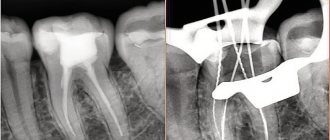There are many different articles on the Internet that describe in detail the operation of dental implantation, the different types and brands of dental implants. But, alas, there are almost no materials that would talk about the importance of choosing an implantologist for the upcoming operation. Meanwhile, the success of implantation will depend 90% on the level of knowledge and professionalism of the implantologist.
We have specially prepared an article for you, after reading which you will learn why choosing an implantologist should be approached with maximum care and responsibility, how to choose the right doctor, what questions you need to ask a specialist to find out the level of his competence.
Why is it important to choose the right doctor before dental implantation?
You need to learn and remember one very important thing - even the best and branded dental implant will not last you long if the implantologist makes mistakes when implanting an artificial root. An incorrectly screwed implant may begin to be rejected, but even if it takes root, the final result of implantation and prosthetics will not please you with aesthetics. The neck of the implant may be exposed, the gums will appear bluish, and of course, any stranger will guess that you do not have your own teeth, but artificial ones. And if implant rejection is a fairly rare complication, then complaints about poor aesthetics after dental implantation can be found in large numbers on a variety of dental forums.
And people encounter such negative consequences of poor-quality implantation precisely because they did not bother to carefully choose a doctor. And not every clinic employs experienced, conscientious and competent implantologists. Unfortunately, in most dentistry, there is a purely commercial approach to patients - the main thing is that the person brings money to the clinic. But whether he will be satisfied with the result of the implantation, whether complications will arise in the future - such “specialists” do not ask such questions.
So how can you protect yourself from such a purely commercial and, frankly speaking, dangerous approach to health? It’s simple: prepare for dental implantation correctly and start with a careful and careful selection of the implantologist who will conduct your treatment.
Features of the CME system
According to the project developed by the Ministry of Health, specialists need to score 250 points - 250 ZET (credit units) - within 5 years of professional activity. 1 point is equal to 1 academic hour of study (45 minutes).
Each year you must complete at least 50 hours of training.
You can choose 1 advanced training course for 36 hours or 2 courses for 18 hours. The remaining 14 hours are achieved through training in non-formal education programs - seminars, webinars, conferences, and so on. This rule applies only to specialists who have been working in their profession for 5 years or more. If a health worker has undergone retraining, he must first pass accreditation and only then gain points for the accreditation exam, which must be passed after the next 5 years. The same applies to graduates of universities and colleges. Immediately after graduation, they must pass a knowledge test at accreditation centers.
The main principle of implantation, which any competent implantologist knows about and patients should know
This principle of implantology is known to all doctors involved in dental implantation and experienced, decent implantologists agree with it 100%. And you should learn and remember this principle, because it says the following:
If during the period of engraftment of the implant, an inflammatory process occurs in the area of its installation and the implant begins to be rejected, the cause of such complications is always errors in planning and performing the operation, gross violations in the implantation protocol, or outright negligence of the doctor.
Implant rejection or inflammation in the area of its implantation during the period of osseointegration (engraftment) of implants may not occur due to medical errors in patients at risk. This:
- People suffering from diabetes, osteoporosis, hypertension;
- Elderly people;
- Smokers;
- Women during menopause.
But, firstly, a decent and competent implantologist will always warn his patient about possible risks, and secondly, with proper planning of dental implantation and individual selection of implant installation technology, it is possible to carry out the operation so that no complications arise after it.
IMPORTANT: in a good clinic that values its reputation and takes a responsible approach to the health of its patients, you will be given a guarantee of free re-dental implantation if implant rejection occurs at the stage of its osseointegration (during the period of fusion of the implant with the bone). Such guarantees for implantation are an indicator that the clinic is truly responsible for the services provided and you will definitely be able to receive high-quality treatment there.
Reasons for creating a CME system
The main reason is the need to improve the quality of education of doctors, paramedics and pharmaceutical workers. Previously, specialists only needed to regularly take advanced training courses. Having received a certificate every 5 years, health workers could continue to work until the next period of regular training.
However, the medical and pharmaceutical field is developing rapidly. Every year, research is conducted, new drugs and treatment technologies are developed, new diseases and professions appear. To apply up-to-date information in your work, it is not enough to take short training courses every 5 years.
The CME system should solve the problem of lack of qualifications among specialists. A similar method of knowledge control is used in Europe and America. Now healthcare workers will have to collect points annually.
How to choose the right implantologist: detailed instructions
Choosing the right implantologist is not an easy task and in practice it is implemented in several successive stages. Below we will describe in detail all these stages of selection and hope that they will help you find both a good clinic and an excellent specialist for dental implantation at an impeccable level of quality and without dangerous risks to your health.
Stage one: prepare for a consultation with implantologists
In order to ask the right questions at an appointment with an implantologist that are important to you and you need to get the most detailed answers, do not be lazy and carefully prepare for the consultation. To do this, it will be useful to read articles about dental implantation, find out what implant technologies exist, what methods are recommended for single restorations, and what implant technologies are used for a completely toothless jaw.
IMPORTANT: if you are completely missing teeth in rows, it will be useful for you to read materials about such dental implantation techniques as All-on-4, All-on-6, basal implantation, as well as prosthetics with conditionally removable dentures on implants. If you need to restore one or more teeth, look for good articles on one-stage and classic two-stage dental implantation. You can read materials on all these methods of dental implantation on the website of our dentistry in St. Petersburg - “New Line Dent”.
It will be useful to write down all the questions that you have while reading materials about dental implantation on a piece of paper and subsequently ask the implantologist during the initial consultation. Pay attention to how the implantologist will react to your questions: a sensitive, experienced and competent doctor will always be sympathetic to the patient’s desire to learn as much information as possible about the upcoming operation. But implantologists who are incompetent or overly ambitious react with hostility to informed and prepared patients. Is it worth being treated by an implantologist who does not communicate with you and cannot explain the details of the operation that are important to you? The conclusion here is obvious - definitely not.
Stage two: determine your budget for implantation
You especially need to decide on the budget that you can spend on dental implantation if you have to have one or three implants implanted to restore your teeth. For simultaneous and classical implantation - methods used in the case of partial absence of teeth, implants are offered in a wide range and from a wide variety of manufacturers.
In such a variety, it is not difficult for a person who is far from dentistry and implantation to get confused, and in clinics they may recommend premium implants, the most expensive of the possible options. Of course, such implants justify their high cost, but if you don’t have extra money in your budget and the clinical case does not require the installation of implants with special characteristics, you can always find an inexpensive and affordable alternative. For example, install Korean or Israeli implants instead of expensive American systems.
IMPORTANT: You can read a review of implants from different manufacturers on our website. In the same material, we analyze in detail all the key characteristics of dental implants.
However, there cannot be complete independence with the choice of implants, since implantation systems are selected based on diagnosis and study of all the features of the clinical case. And here again the competence and integrity of the implantologist comes to the fore, which can be determined by questions that you must ask the doctor during the initial appointment. What are these questions? We will present them in the next section of our article.
Registration of received points
ZET accounting is carried out automatically. After training, the specialist enters information about the documents received during the courses through his personal account. The procedure for receiving points is as follows:
- choose advanced training courses or informal education;
- undergo training and receive a document;
- enter the document code in your personal account.
If the DPO center can conduct courses with points, after entering the data, the system will verify the information and automatically award ZET.
Procedure for joining the CME system
Only specialists with a medical or pharmaceutical education can become participants, so to join the CME system you must:
- Graduate from a university, college or retraining course in a medical or pharmaceutical specialty.
- Pass the accreditation exam in specialized centers.
- Register on the official CME portal and enter information about educational documents - including a certificate of accreditation.
Immediately after checking the data, the specialist can begin to collect points for periodic accreditation.
Implant survival rate
Today, the high quality of implants (subject to cooperation with quality manufacturing companies) means the highest survival rate than ever - 98.5%!
But even if the implant does not take root, you have a guarantee, and they will simply install it again. Therefore, you should not read horror stories about bad cases on the Internet - they happen extremely rarely, and there may be several reasons:
- Poor quality of the implant used
- Individual factors
- Poor implant care
- Systemic diseases of the patient (HIV infection, AIDS, hypertension, uncontrolled diabetes mellitus)
Implant quality requirements
The main requirement for implantable implants is the purity of the material from which they are made (titanium). Compliance with this condition guarantees the successful completion of the procedure in 99% of cases.
Important requirements include:
- the presence of a rough surface on the prosthesis, which increases its area;
- sufficient level of survival;
- sterility of the implant, absence of any foreign inclusions on its upper part;
- versatility.
The last point consists both in the availability of implants of various sizes, corresponding to various clinical conditions, and in the possession of a wide range of abutments, which are supragingival parts of various shapes and sizes that imitate treated teeth.
Compliance of dental services with all the described requirements becomes the key to successful surgery even in difficult conditions, implementation of high-quality modern prosthetics, and extension of the life of dentures.
On what basis is a treatment plan drawn up?
The treatment plan looks like a list with specific dates allocated:
- therapeutic measures aimed at improving the health of teeth and gums;
- increasing bone volume (if necessary);
- choosing the optimal type of implants (with clarification of their price), the required medical equipment;
- selection of such important elements as abutments, dentures, dental crowns (indicating materials, color, external features).
After planning approval, the specialist must discuss each point of the upcoming treatment in detail with the patient.
Mandatory types of examination
To accurately determine the condition of a patient’s bone tissue, dentists turn to two main diagnostic methods:
- Orthopantomogram.
- Computed tomography.
An orthopantomogram is an extensive image that allows you to study the condition of the jaw in preparation for implantation. Thanks to this procedure, the doctor receives important data regarding the tooth roots located near the maxillary sinuses, the volume of bone structures, and develops a subsequent treatment plan.
To conduct an orthopantomogram, you will need a special device - an orthopantomograph. Such a device can be digital, having less harmful radiation, allowing you to save the pictures taken in electronic form. It is convenient to contact them if necessary (in order to determine the effectiveness of the various stages of the treatment).
Orthopantomographs are also analog. Such versions of these devices, considered already outdated, are intended for taking photographs on film. Their use has a significant disadvantage - images obtained through the use of such devices quickly become dim and lose their clarity.
Computed tomography, based on radiation diagnostics, allows one to obtain layer-by-layer images of bone tissue, which help to study in detail its condition in the area of planned implantation. The difference between CT and other diagnostic methods is the ability to have not a flat, but a 3-dimensional image, to most accurately determine the quality of the bone structure of the jaw, its width and thickness.
Computed tomography, based on radiation diagnostics, allows one to obtain layer-by-layer images of bone tissue, which help to study in detail its condition in the area of planned implantation. The difference between CT and other diagnostic methods is the ability to have not a flat, but a 3-dimensional image, to most accurately determine the quality of the bone structure of the jaw, its width and thickness.
- bone volume and thickness;
- quality of bone matter;
- important details of the location of the nasal and maxillary sinuses.
CT has relatively found its way into dentistry (over the past few years). Important advantages of this diagnostic procedure are high image clarity, absence of distortion, the ability to accurately determine the size of objects that are not sufficiently visible to the eye, speed of examination (the procedure is limited to a few minutes), and lower radiation exposure compared to x-rays.











